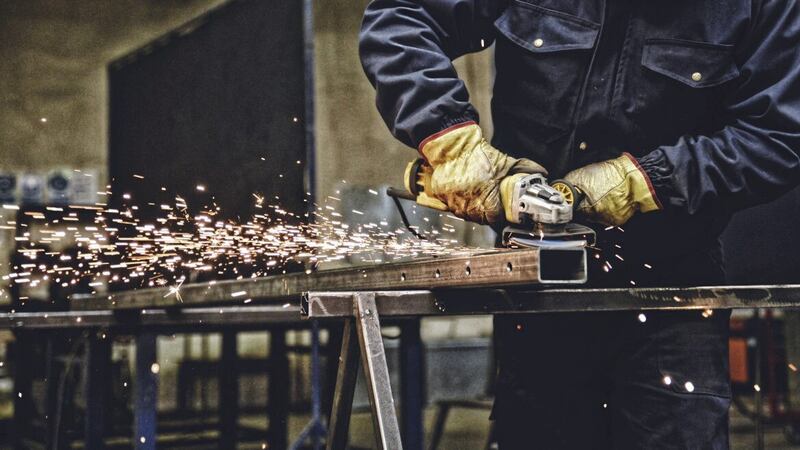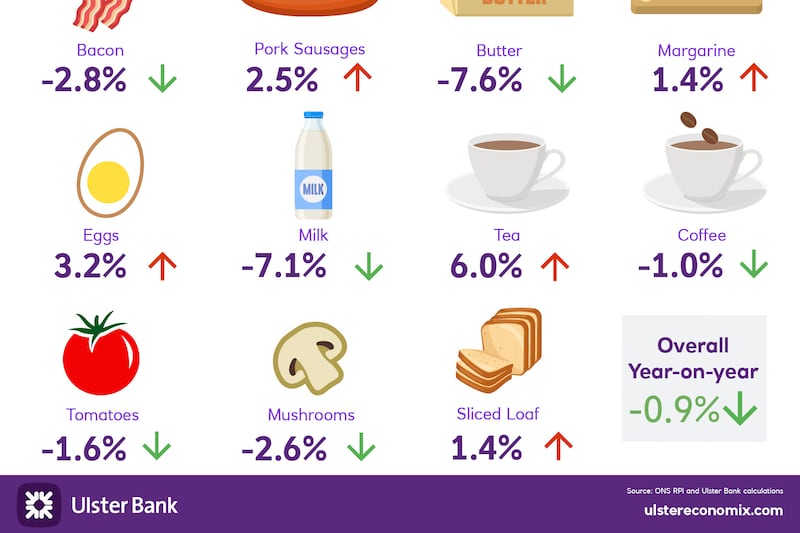THE north’s manufacturing sector experienced a significant reversal in fortune last month amid price pressure and the ongoing political fallout over the Northern Ireland Protocol, according to a new report.
Ulster Bank’s monthly purchasing managers index (PMI) consistently flagged up the sector as the standout performer in the local private sector in recent months.
But the latest survey, which reflects the experiences of 200 private sector firms, suggests manufacturers saw a significant slump in new orders during June.
Orders fell at the fastest pace (outside of Covid-19 lockdowns), since April 2009.
It was part of a wider slowdown in the north’s private sector last month, as the cost crisis took its biggest toll on the economy to date in 2022.
Output and new orders both fell sharply as severe price pressures hit demand.
But it was the sudden reversal in fortune of the local manufacturing sector that was particularly stark, according to Ulster Bank’s chief economist Richard Ramsey.
“Outside of periods of lockdown, Northern Ireland manufacturers recorded their biggest month-on-month fall in the output index since the PMI series began almost 20 years ago,” he said.
“The ‘U-turn’ in new orders has been significant too with a drop of over 20 points between April and June.”
The economist said while many manufacturers have benefited from the Northern Ireland Protocol, he said the current political impasse between the UK Government and the EU raises concerns over the durability of the benefits and therefore how the trade agreement will evolve.
“This, alongside a realisation that an economic slowdown is gathering pace, helps explain why Northern Ireland manufacturing has gone from the most optimistic sector to the most pessimistic in the space of one month,” he said.
The PMI showed both business input costs and selling prices remained high during June, while higher costs for energy, fuel, shipping and wages were all widely reported.
In a largely bleak report, the little positive news surrounded job creation. All four sectors – manufacturing, services, construction and retail, increased their staffing levels at a faster rate in June.
But that only served to highlight the ongoing issues around the shortage of skills.
“The cost-of-living crisis coupled with competition for staff has fuelled pay pressures and added to the cost-of-doing business crisis,” said Richard Ramsey.
While all four sectors reported a fall in business activity during June, the services sector, which accounts for around half the north’s economy, performed best.
But services firms reported costs soaring at a record rate last month.
“Outside of employment, positive news remains in short supply in the latest survey though there are some signs that supply chain disruption could be easing,” added Mr Ramsey.
“Supplier delivery times continued to lengthen in June but at the slowest pace since the question was first asked 16 months ago.
“Clearly, an economic slowdown, by reducing demand, should help to ease supply chain disruption further in the year ahead.”







